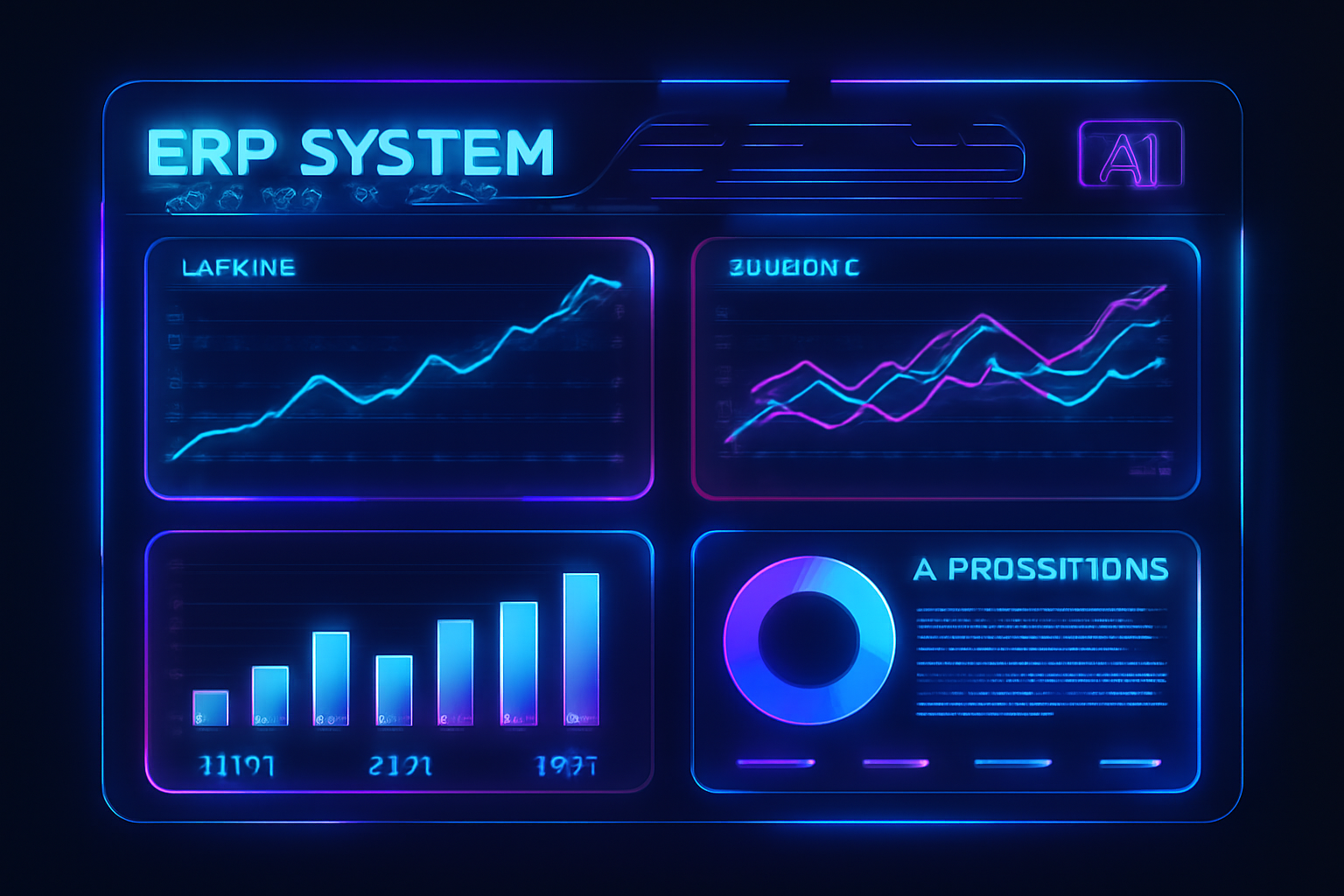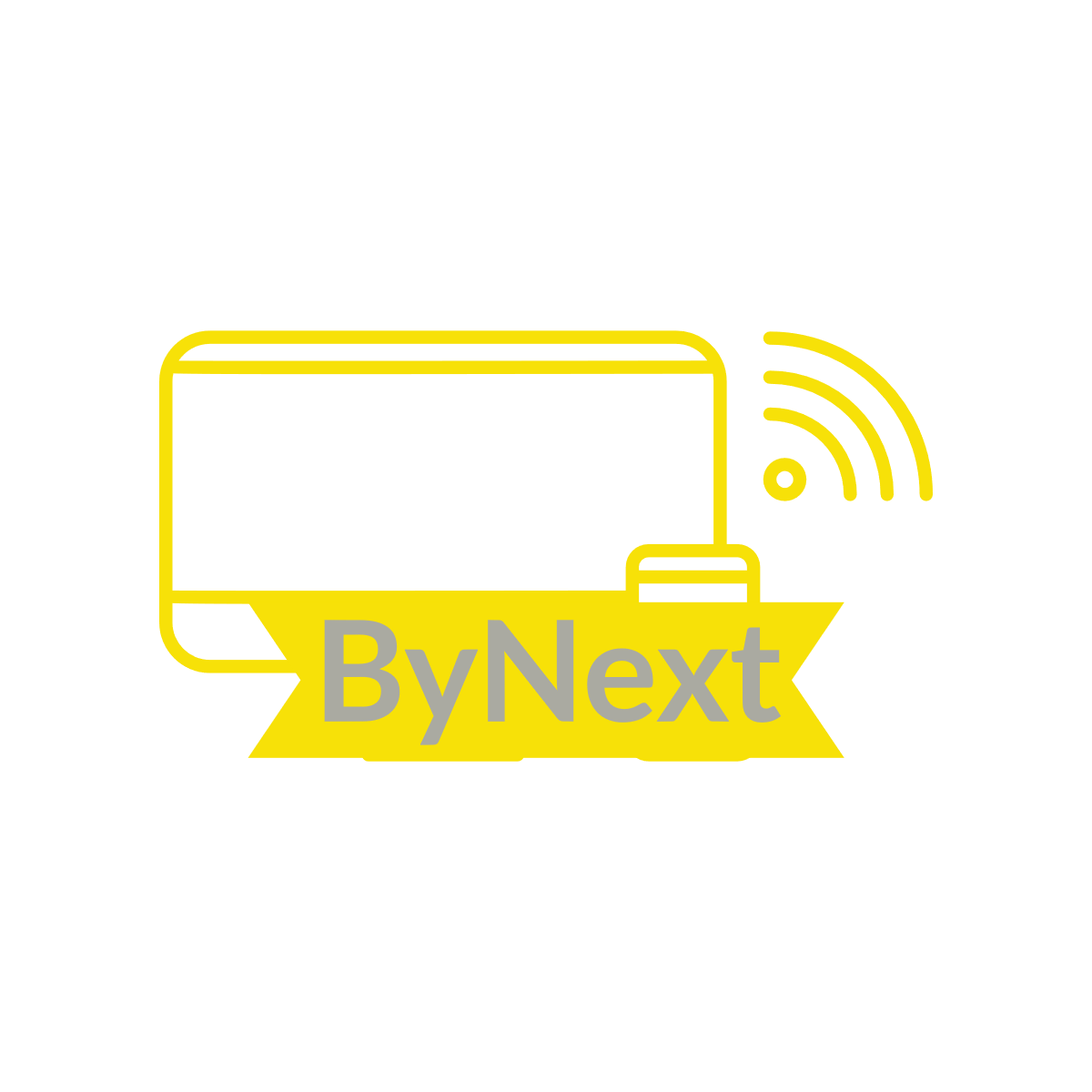
AI-driven ERP (Enterprise Resource Planning) systems represent a major evolution in business technology, blending artificial intelligence with traditional ERP platforms to automate processes, predict outcomes, and enhance decision-making. These systems use machine learning, natural language processing, and predictive analytics to go beyond basic data management, enabling businesses to operate more efficiently in dynamic markets. For entities like Nusaker—a technology solutions provider focused on streamlining operations through AI integration—this technology is not just a tool but a cornerstone for future growth. If you’re exploring this topic, perhaps for content creation or digital marketing strategies, let’s break down the future of AI-driven ERP systems, with a spotlight on how Nusaker is positioning itself in this landscape.
As of 2025, AI in ERP is maturing into a “dynamic business brain,” shifting from reactive data handling to proactive intelligence that anticipates needs and optimizes workflows. This is particularly relevant for content creators, marketers, and SEO specialists in India or global markets, where integrating such systems can automate content distribution, analyze audience data, and even enhance SEO through predictive trend forecasting.
Table of Contents
What Are AI-Driven ERP Systems?
At their core, AI-driven ERP systems integrate AI technologies into ERP software to manage resources across finance, supply chain, HR, and more. Unlike traditional ERP, which mainly organizes data, AI versions automate tasks, analyze patterns, and provide real-time insights. Key components include:
-
Machine Learning (ML): Analyzes historical data to predict trends, such as demand forecasting or inventory optimization.
-
Predictive Analytics: Forecasts disruptions, market behaviors, and resource needs, reducing costs and improving efficiency.
-
Natural Language Processing (NLP): Allows intuitive interactions, like voice commands for reports or interpreting customer feedback.
-
Automation Tools: Handles routine tasks like payroll, invoicing, and supply chain monitoring, freeing teams for strategic work.
These features make AI-driven ERP essential for businesses aiming for agility, especially in sectors like digital marketing where real-time data can refine campaigns or personalize content.
The Future of AI-Driven ERP Systems
Looking ahead to late 2025 and beyond, AI-driven ERP is set to reshape industries through several emerging trends. Based on recent analyses, the landscape is evolving toward more collaborative, ethical, and integrated systems:
-
Hyperautomation and Augmented Intelligence: ERP will deeply automate processes while augmenting human decisions, creating human-AI partnerships for innovation. For instance, AI agents could monitor real-time data from IoT devices, predict supply chain issues, and suggest sustainable alternatives.
-
Explainable AI (XAI): As AI decisions become complex, systems will prioritize transparency, explaining logic behind recommendations to build trust—crucial for regulated industries.
-
Generative AI Integration: This will handle end-to-end workflows, from generating reports to simulating scenarios with digital twins for predictive maintenance.
-
Cross-Platform and Sustainability Focus: AI will unify operations across platforms, emphasizing eco-friendly optimizations like reducing energy waste in supply chains.
-
Industry 5.0 Influence: Expect ERP to blend machine precision with human creativity, enabling adaptive solutions for personalized business needs.
By 2025, standardization of AI features, ethical governance, and quantum computing integrations are becoming norms, making adoption more predictable and less risky. Businesses that adapt proactively gain a competitive edge, with AI potentially cutting operational costs and boosting customer engagement through personalized experiences.
Nusaker and the Future of AI-Driven ERP
Nusaker appears to be a forward-thinking entity—likely a company or platform—specializing in technology solutions that leverage AI-driven ERP to enhance efficiency and innovation. From available insights, Nusaker is embedding AI into its ERP frameworks to streamline operations, particularly in areas like resource allocation, donor management (possibly in non-profit or network contexts), and supply chain optimization.
How Nusaker Is Leveraging AI-Driven ERP
-
Operational Enhancements: Nusaker uses ML algorithms to predict demand, automate workflows, and personalize interactions, allowing quick adaptations to market changes. For example, it integrates chatbots and robotic process automation (RPA) for faster decision-making and improved usability.
-
Key Applications: In Nusaker’s model, AI handles real-time data processing for forecasting trends, reducing manual errors in inventory and finance, and enhancing customer experiences through behavior analysis. This is ideal for digital marketers, as it could automate content personalization or SEO keyword predictions.
-
Future Outlook for Nusaker: As Nusaker transitions from resource-based to digitally integrated operations, AI-driven ERP will drive sustainable growth. Features like predictive maintenance prevent breakdowns, while NLP enables intuitive interfaces for global users, including those in multilingual markets like India. The focus is on data-driven governance, where AI optimizes supply chains and fosters innovation, positioning Nusaker as a leader in agile business solutions.
In essence, Nusaker exemplifies how AI-driven ERP can transform entities from traditional operations to intelligent, scalable models, potentially influencing sectors like content creation by automating analytics and workflow.
Benefits and Challenges
Benefits
AI-driven ERP systems offer tangible advantages, especially for content creators and marketers:
-
Efficiency Gains: Automate tasks to save time—e.g., reducing editing or data entry by up to 50% in content workflows.
-
Better Insights: Predictive tools forecast trends, aiding SEO strategies or market analysis.
-
Cost Savings and Customer Focus: Lower operational costs while personalizing experiences, boosting retention.
-
Scalability: Supports growth in global markets, with multilingual capabilities for Hindi-English content.
Challenges
Implementation isn’t without hurdles:
-
Data Quality Issues: Requires clean data; poor integration can hinder effectiveness.
-
Change Resistance: Teams may need training to adapt.
-
Ethical and Privacy Concerns: Ensuring AI governance is key, especially with sensitive data.
To overcome these, businesses like Nusaker emphasize structured adoption frameworks.
Choosing and Implementing AI-Driven ERP
For content creators or digital marketers in India, start with assessing needs—e.g., if you handle multilingual SEO content, prioritize tools with NLP like those in Nusaker’s ecosystem. Vendors are standardizing features, so evaluate based on integration ease and scalability. If exploring for your workflows, consider how these systems could automate AI tool reviews or financial content analysis, aligning with your interests in AI trends and SEO[ user-information context].
In summary, the future of AI-driven ERP systems is bright, with innovations like hyperautomation and generative AI set to make businesses more predictive and efficient. Nusaker is at the forefront, using these technologies to drive innovation and adaptability, offering a model for others in tech-savvy markets. If you’re building content around this, it could rank well for keywords like “AI ERP future” given the rising interest in 2025. Ready to dive deeper or need tool recommendations?
People Also Ask
What is an AI-driven ERP system?
An AI-driven ERP system integrates artificial intelligence technologies like machine learning, natural language processing, and predictive analytics into traditional ERP software. This allows for intelligent automation, real-time insights, and adaptive decision-making, going beyond manual data handling to optimize business operations such as supply chains and forecasting.
How is AI changing ERP?
AI is transforming ERP by automating routine tasks, enabling predictive analytics for better decision-making, and improving user interactions through natural language interfaces. It shifts ERP from static data management to dynamic, intelligent systems that enhance efficiency, reduce costs, and support innovations like real-time reporting and personalized experiences.
What are the benefits of AI in ERP?
Key benefits include automated operations for tasks like data entry and supply chain management, advanced data analysis for uncovering trends, improved forecasting to cut costs, and enhanced customer personalization. Overall, AI can boost operational efficiency by 15-25% and enable smarter, faster decisions.
How can AI be used in ERP?
AI in ERP is used for automating processes (e.g., invoice processing), providing predictive insights (e.g., demand forecasting), facilitating natural language queries for easier access, and enabling continuous learning to refine recommendations. It’s applied in areas like finance, HR, and customer service to drive efficiency and innovation.
What is Nusaker’s role in AI-driven ERP?
Nusaker is leveraging AI-driven ERP to enhance operational efficiency, automate workflows, and provide predictive capabilities for market trends and resource optimization. It focuses on intelligent automation, real-time visibility, and competitive advantages in areas like supply chain management and personalized recommendations.
What challenges does AI in ERP face?
Challenges include ensuring data quality for accurate AI outputs, overcoming employee resistance through training, addressing ethical issues like bias and privacy, and integrating AI seamlessly with existing systems. Proper governance and structured implementation are essential to mitigate these.
What are the future trends in AI and ERP integration?
Future trends include generative AI for report generation, hyper-personalization of interfaces, predictive supply chain models, AI-powered scenario planning, and stronger integration with IoT for real-time responses. These will make ERP systems more autonomous and adaptive by late 2025.
What are the top AI-enabled ERP vendors in 2025?
Top vendors include SAP S/4HANA Cloud, Oracle NetSuite, Microsoft Dynamics 365, Infor, Epicor, Acumatica, Sage Intacct, IFS, SYSPRO, and Rootstock, known for AI features like machine learning analytics, automation, and industry-specific optimizations.
How does AI improve decision-making in ERP?
AI enhances decision-making by analyzing real-time data for instant insights, predicting outcomes, and providing alerts or suggestions. This eliminates manual report digging, enabling faster, data-driven actions in areas like finance and operations.
What is the role of generative AI in ERP systems?
Generative AI in ERP generates reports, summaries, emails, and workflows via plain-language prompts, automates content creation, and simulates scenarios for planning. It’s increasingly embedded in platforms like Oracle and Microsoft for proactive business management.

